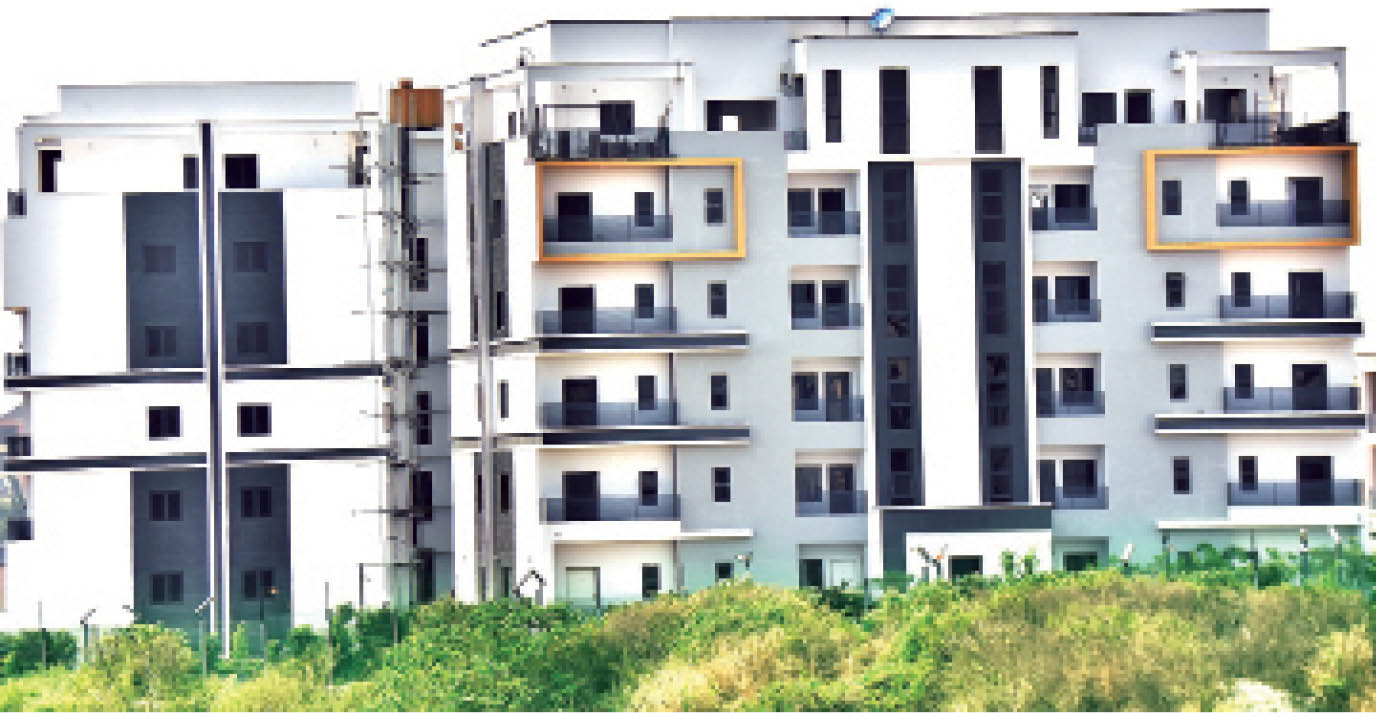Why Nigeria must embrace green building solutions – Arc. Yisa
An architect with about four decades of lecturing and professional practice, Mr Bernard Yisa, has urged Nigerians to embrace green building solutions. Yisa, who specialises in the application of renewable energy sources to buildings, spoke to Daily Trust in Abuja. He said solar, wind, thermal and biogas energy sources are sustainable and environmentally friendly […]

A residential building in Wuye, Abuja
An architect with about four decades of lecturing and professional practice, Mr Bernard Yisa, has urged Nigerians to embrace green building solutions.
Yisa, who specialises in the application of renewable energy sources to buildings, spoke to Daily Trust in Abuja.
He said solar, wind, thermal and biogas energy sources are sustainable and environmentally friendly and with Nigeria caught in the throes of devastating climate impacts, it has become necessary for the construction industry and the built environment to adopt green building techniques when developing structures.
He said, “The trend all over the world now is for buildings to be sustainable, to be green. Reason being that the built industry contributes about 30 per cent of the carbon footprint that is affecting our planet.
“There are several other sectors that contribute to the carbon footprint – the transport sector, the power generation sector, which is one of the highest, the burning of coal and others. But now, there is advocacy for modern buildings to be sustainable. This means you apply passive use of solar energy as much as possible to the energy requirements of the building.”
He explained that Nigeria is in the tropics and the only way a home can provide comfort without the use of air conditioning is by natural ventilation; and that architects are being trained to design buildings that use nature-the physical properties of the atmosphere-to condition the building as much as possible.
He added, “They allow air to pass through surfaces and ventilate the internal spaces thereby reducing the temperature. That way you can condition a building without the use of electricity, which is generated from very expensive sources and which comes from sources that emit carbon dioxide, such as coal, gas etc. that are causing temperature rise all over the world.”
Yisa said skyscrapers consume a lot of power, especially when it comes to air-conditioning of such high-rise buildings hence the use of renewables to cut down cost and to save the environment.
“The cladding of such buildings is mostly curtain walling and you cannot open the windows at that height because of wind and other security issues. So such buildings have a central air-conditioning system that consumes a lot of power from municipalities and architects are currently being trained to design such buildings to as much as possible not rely on the power that comes from the burning of fossil fuels,” he added.
He said the same thing applies to medium-scale buildings and residential structures.
Yisa added, “You can use passive application of solar energy to condition your building, depending on how you design your building, how you place it on the site and the type of openings you have and how it is facing away from the hot sun.
“That goes a long way in producing a building that is very conducive and comfortable; and also reducing your dependency on the power grid and subsequently reducing the burning of fossil fuels.”
He emphasised that renewables were not just sustainable, they were more simple, affordable and cleaner, adding that with renewable energy sources, more Nigerians can have their energy needs met.
